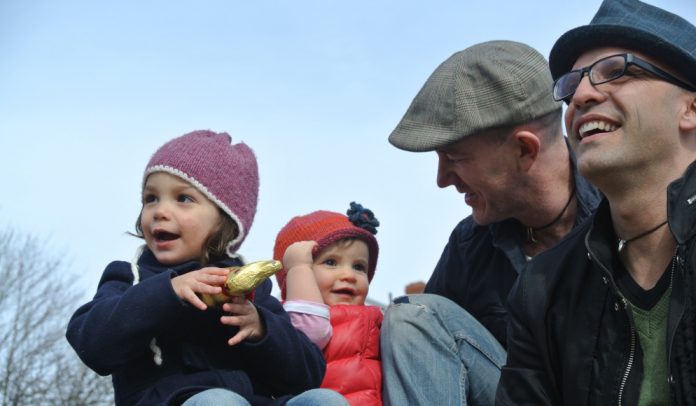
(Editor’s note: This story appears in the March/April 2017 print edition of Boston Spirit magazine. Subscribe for free today.)
For much of its nearly 30-plus years of existence, the Boston LGBT Film Festival’s organizers heard from skeptics who asked why such an event was necessary, especially over the past decade as more LGBT characters and storylines moved steadily into the mainstream.
That’s not the case this year. “Nobody has asked us that question since November,” says Jared Vincent, the festival’s lead programmer. “2016 was a rough year for our community. Audiences and filmmakers are eager to engage.”
“Wicked Queer 2017,” Boston’s annual LGBT Film Festival, runs March 30–April 9 at various venues around Boston and Cambrige including Emerson’s Paramount Theater, the MFA and the ICA, which hosts the fest’s opening night. For tickets and lots of details on the full line-up, check out www.wickedqueer.org.
Vincent notes that many of the wide range of fiction features, documentaries and short films submitted to Boston’s annual LGBT Film Festival dealt with resistance and grassroots political action. One of these is “Check It,” which Vincent calls “a wrenching and important film.”
“Check It” is a timely and incisive portrait of The Check It, dubbed a “gay gang” by the media. Made up of more than 200 LGBT people of color ages 14–22 from inner city neighborhoods in Washington, D.C., most of these gay and transgender youth have experienced physical and sexual violence. Starting in 2009, they began fighting back with equal brutality. Led by an ex-convict named Mo, many of the gang members have criminal records that include charges of assault, armed robbery and drug dealing. Some see The Check It as a social menace; others say this is what happens when social institutions fail the most vulnerable citizens.
“Check It” directors Dana Flor and Toby Oppenheimer, whose 2009 documentary “The Nine Lives of Marion Barry,” about the infamous former Mayor of Washington D.C., aired on HBO, spent more than three years documenting the lives of the gang’s members whose bonds help them to survive on the streets as many try to break out of the cycle of poverty, violence and oppression.
Also notable in the festival is “Free CC,” a documentary about CeCe McDonald, a transgender woman of color who in 2011 fatally wounded an attacker who assaulted her and a group of friends in Minneapolis. Director Jac Gares’s film, which is produced by Laverne Cox, the trans activist and actress who stars in “Orange is the New Black,” examines the injustices many trans people face in prison. After McDonald pleaded guilty to second-degree manslaughter (in a plea bargain), she spent 19 months in a men’s prison and was frequently placed in solitary confinement, allegedly for her own protection.
Another highlight is “The Guys Next Door,” a documentary from veteran Boston filmmakers Amy Geller and Allie Humenuk. Shot over three years, Geller and Humenuk tell the story, with humor and humanity, of Erik Mercer and husband Sandro Sechi and their daughters Eleonora and Rachel Maria, both conceived with Mercer’s college friend Rachel Segall and with full support of her husband, Tony. Together, these four adults and two kids have created an extended family with all the joys, tensions and moments big and small that define all families of all configurations. As the filmmakers followed their subjects from the Boston suburbs to Mercer and Sechi’s move to Portland, Maine, the film emerges as an intimate portrait of a modern family. “The Guys Next Door,” a hit on the national festival circuit in 2016, may not be overtly political. But since the ascension of Trump, the very act of choosing to create and honor a loving family seems an act of courage and defiance.
Among the festival’s many fiction features is Ingrid Jungermann’s satire “Women who Kill,” a hit at last year’s Tribeca Film Festival and nominated for a Spirit Award. Jungermann’s debut feature follows up her popular web series “The Slope” and “F to the 7th.” “Women Who Kill” follows popular true-crime podcasters Morgan (Jungermann) and Jean (Ann Carr), a former couple who profile female serial killers on their show. When Morgan meets the mysterious Simone during her Food Coop shift, she’s blinded by infatuation despite Jean’s warnings that her new love interest is practically a stranger.
From Argentina comes the feature “Disco Limbo,” directed by Fredo Landaveri and Mariano Toledo. It’s described as a movie “about a boy who can’t stop thinking about the night he met another boy and so he loses himself in a whirlwind of memories of parties, mountains and karaokes.” It hasn’t screened much, so the LGBT festival showing is a rare chance for local audiences to see it.








